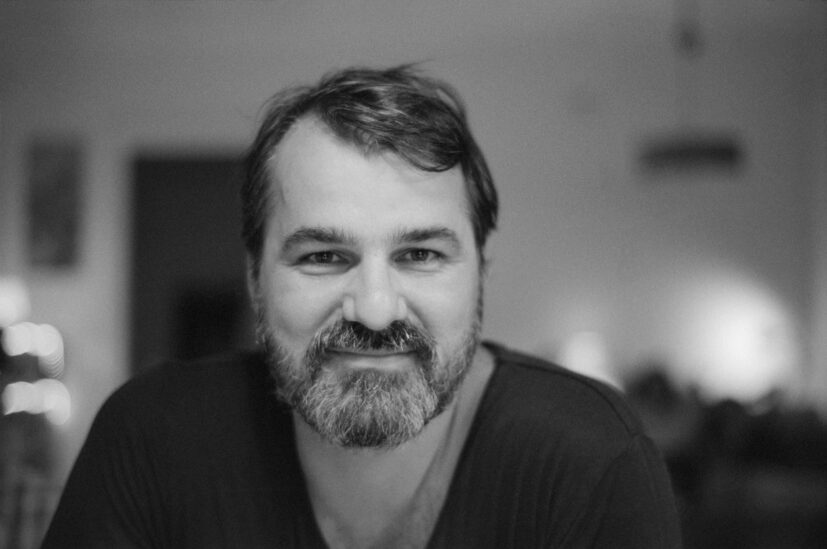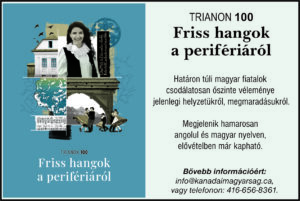For the past 44 years, for Torontonians, September has meant a most important movie event, the Toronto International Film Festival (TIFF). Long lines can be seen in front of the King Street movie theaters and eager fans throng to see the celebrities on the red carpet. Due to the pandemic, this year’s TIFF is not the old TIFF but there will not be a lack of Hungarian participation. A few days after the Venice Film Festival, Toronto moviegoers can see the film, Pieces of a Woman, directed by Kornél Mundruczó. We spoke with the director by phone a few days before the festivals in September.
The world premiere of your film will be this week at the Venice Film Festival, followed a few days later by the Toronto International Film Festival. What are your expectations for the next week and a half?
We are expecting critical days for the future of the film. We are terribly proud that both festivals invited the film. A lot of festivals were cancelled due to COVID, so this was an extremely competitive year and that the film was included was almost a win for us. For and artist, there is a certain separation between a film and its creator. An intimate connection ends when it becomes an entity – a bit of sadness beside the many joys.
While the Venice Festival will take place in its former format, the TIFF – due to the pandemic – will be organized in a hybrid offline-online version. Will you have an opportunity to take part in the festival?
Unfortunately, I cannot travel to Canada. Visitors are not allowed entry from either England, the United States or Europe, which is a strange feeling because, for many years, this has been one of the most important North America festivals. But at least there will be a viewer base for the film, which makes me very happy. This is a cinema film and it is an important and different experience whether the viewers see it on a small screen or their phone as opposed to a movie house with other people. In that sense, I am happy that both festivals have an offline portion. We are lucky enough to be able to attend the Venice Festival. There is a 1,500-seat auditorium where they will allow 500 viewers. In spite of that, it will be a cinematic experience.
The Pieces of a Woman will be your first foreign-collaborated film. In an earlier interview, you said it was originally to be a Hungarian film. How did it become transnational?
As we were about to start on making the film, it turned out we couldn’t secure financing in Hungary. At the time, it was only in the very early planning stage and, to our delight, we found partners – an American producer very much wanted to make the film.
The film was shot in Canada, in Montreal. How did you find the country while shooting went on?
It was a very nice experience! The city itself, the people, the entire milieu – I did not feel the distance from Europe that I often feel in the United States. I have very few impressions of Canada. I spent a few days in Toronto during one of the Toronto Film Festivals but was unable to connect to the city, unlike Montreal, to which I became closely connected. With its multi-culture, its gastronomy, it simply gives the impression that, if a person can be in Montreal, it was very good for the film. Even if we shot the film during a very harsh winter. This is a four-season film which we shot entirely in the winter. Despite that, I retain very pleasant memories of Montreal.
You have worked for a long time with the scriptwriter, Kata Weber. Do you remember your first reaction when Kata sketched out the storyline?
I read parts of the dialogue from her notebook between a mother and daughter, which touched me deeply. From many aspects, this is Kata’s personal story. I feel that she knows a lot about it and deeply understands what a woman feels to be helpless. And what happens when it is expected to undergo something. For me personally, a very nice story started to come together and I continually encouraged her to complete a script, in spite of her protestation of “But Kornél, this does not belong in a film.” In our case, the most important role was the lost child. And everybody relates to this unseen person – a very abstract feeling. And I told her that a film is able to do a lot, to present the unseen.
The film is about a tragic home birth and deals with its aftermath – when the protagonist loses the child and how she deals with her grief. But it also deals with traumas and connections to traumatic events and how to deal with them. This aspect is very current, especially in this COVID period, when a sense of grief exists for everyone. It is not so abstract as it might have been a few years ago.
A recent item from a few days ago is that Martin Scorsese will be among the film’s producers. What does it mean to you that one of the most iconic legends of filmdom speaks approvingly of your work?
For us, it is a huge thing that Martin Scorsese became affiliated. I feel that his sense of quality and great belief in the film gives a legitimacy to our film. It means a lot to me personally. I grew up on the films of Martin Scorsese. The imagery of a bridge is central to the film and I think it is as important for Scorsese and me. Decades can be bridged and we can connect to various generations.
How were you able to secure Shia LeBeouf and Vanessa Kirby as stars?
Shia came onboard before Vanessa. We have been searching for a long time for a project to work on together. I am pleased that he accepted, even though his is not the starring role. It is a testament of his generosity. Vanessa Kirby is a unique situation. I liked her role in the Netflix series The Crown. In this case, she was not a huge star whose talent is to the point that it makes the financing of a film possible – but she is tremendously talented. When she read the script, she flew to Budapest the same day, wanting to meet with me. I immediately felt that she had to play this role. After a lot of struggles regarding financing, we were able to convince the producers that she was the best choice. I think this film will overwhelmingly prove it and the viewers will be introduced to a great talent.
You work with international film stars and a producer of the film is legendary. Many directors may say that this is what they wanted to achieve in their careers. What is the next step? Are there other international plans?
A man’s closest plan is what can be achieved. There are a lot of scripts and sketches in his head or drawer. The birth of a film is a unique and beautiful evolution. In my personal life, I never thought that Pieces of a Woman would be the next film. It is hard to say what the next one will be but, of course, the attic is full of plans.
Beside your directorial work, you are also the artistic director of the Proton Theater that you founded with Dora Büki. How is it possible to correlate those two callings?
Between films, there is usually a year or two gap – at least that is the norm in the European financing process. I spend my time in the theater and the opera, which have become a unique passion for me. I love the theater and, I think it gives me the possibility for a great deal of experimentation as it is less restricted and cheaper. I will have to see if I can do as much theater work after Pieces of a Woman as before it. The more successful a film director, the less time he has for the theater. I think of myself as a film director. In the theater I feel like an outsider who is eternally glad to be able to take a dip into the medium.
(Translated by Csermely Péter)








You must be logged in to post a comment.